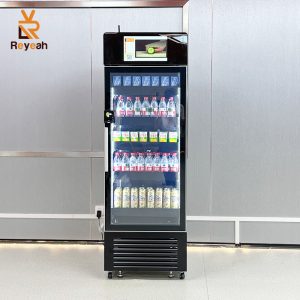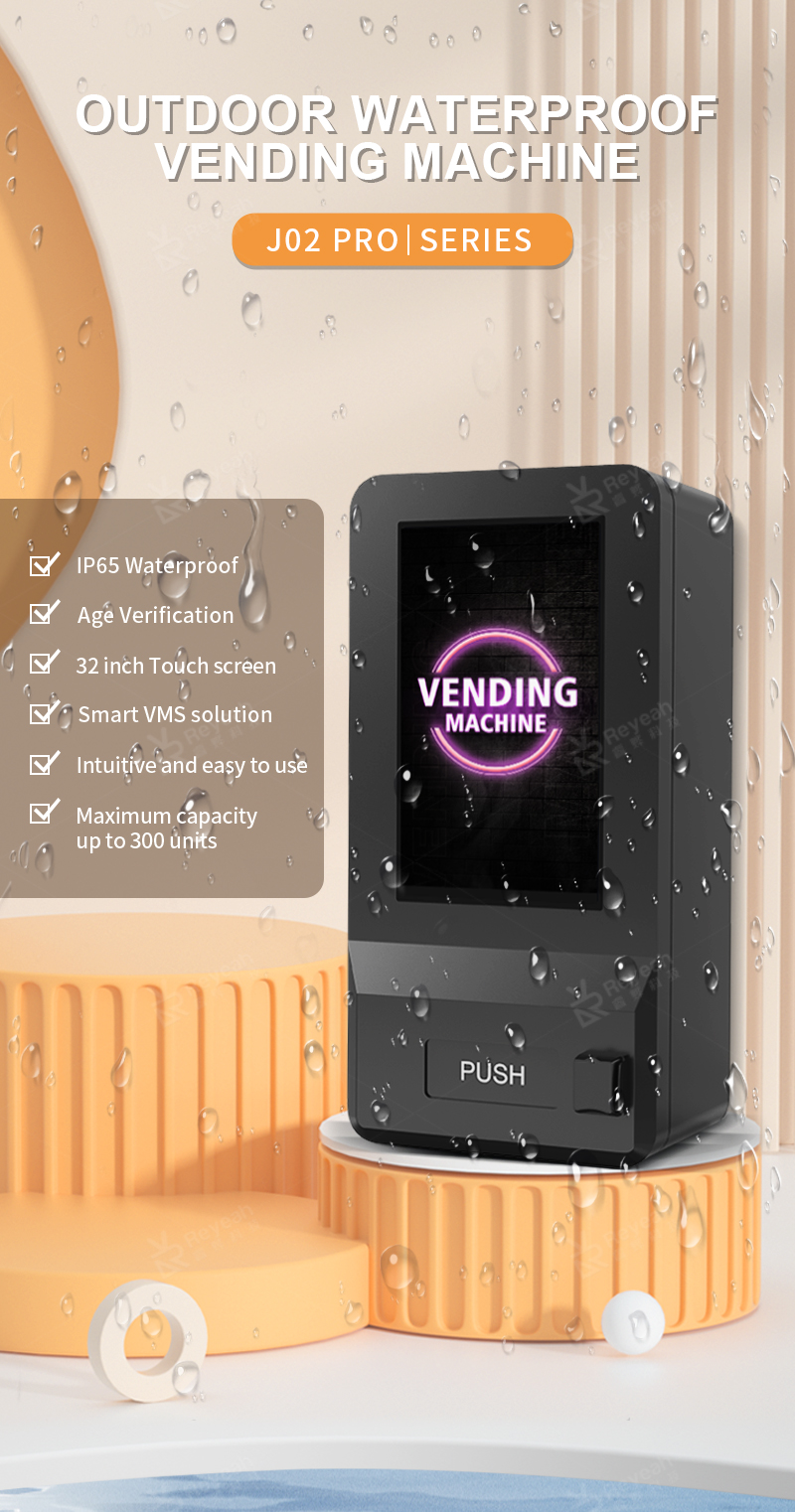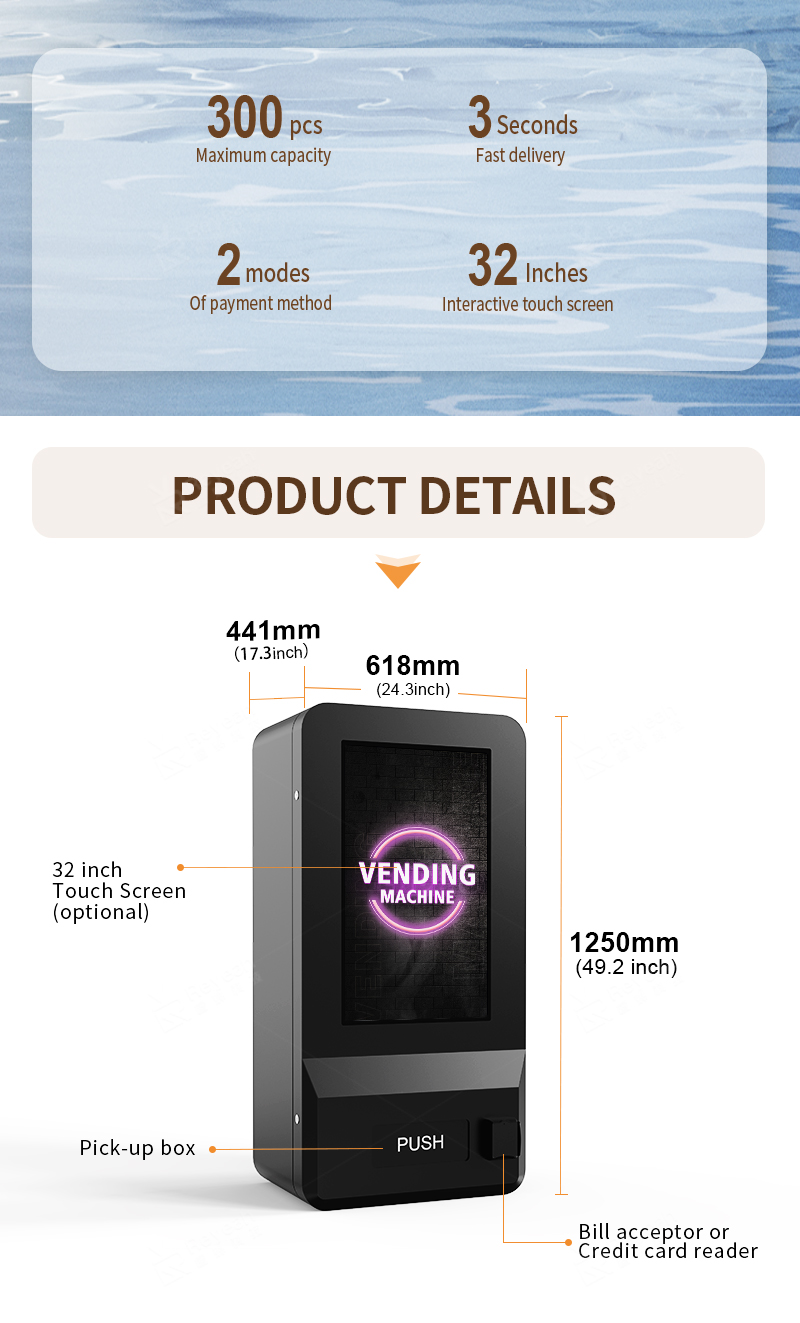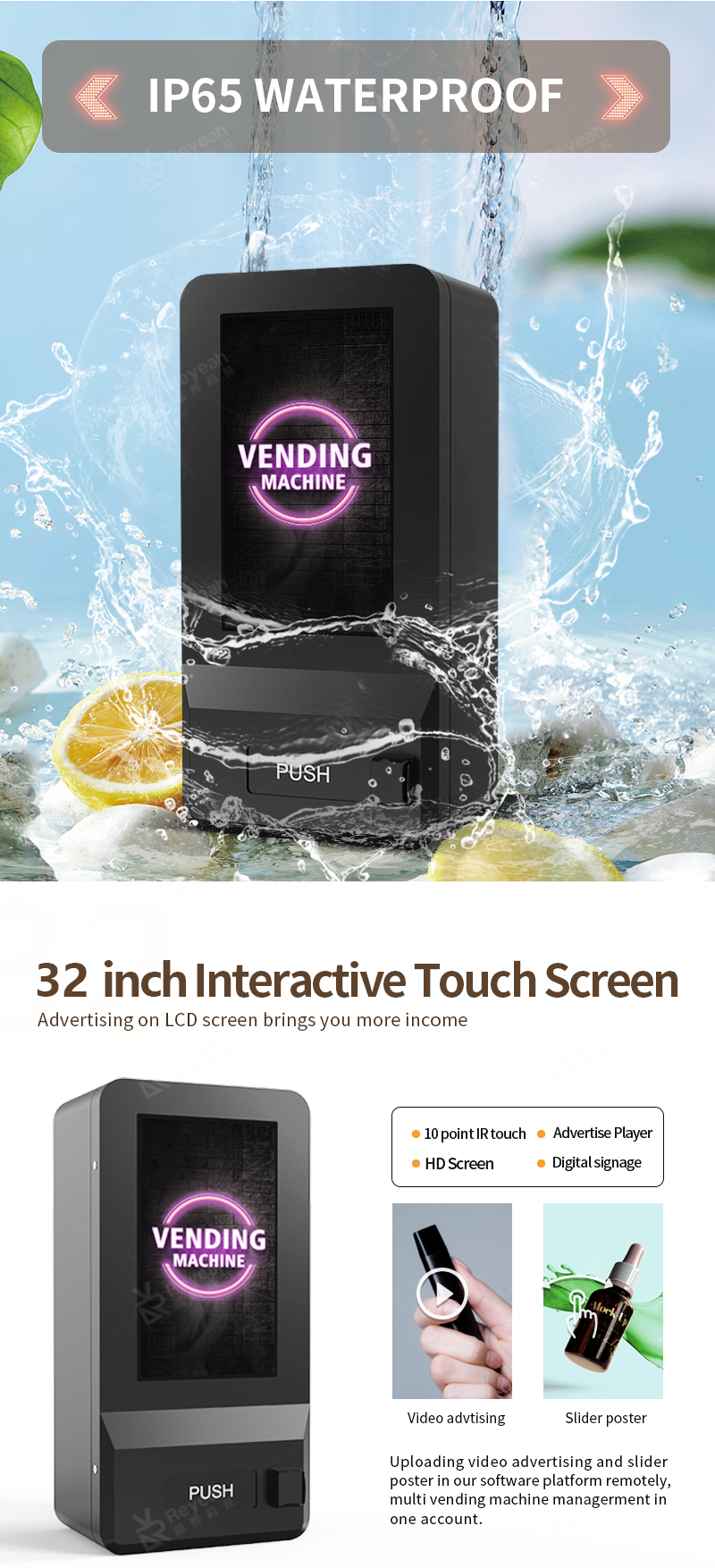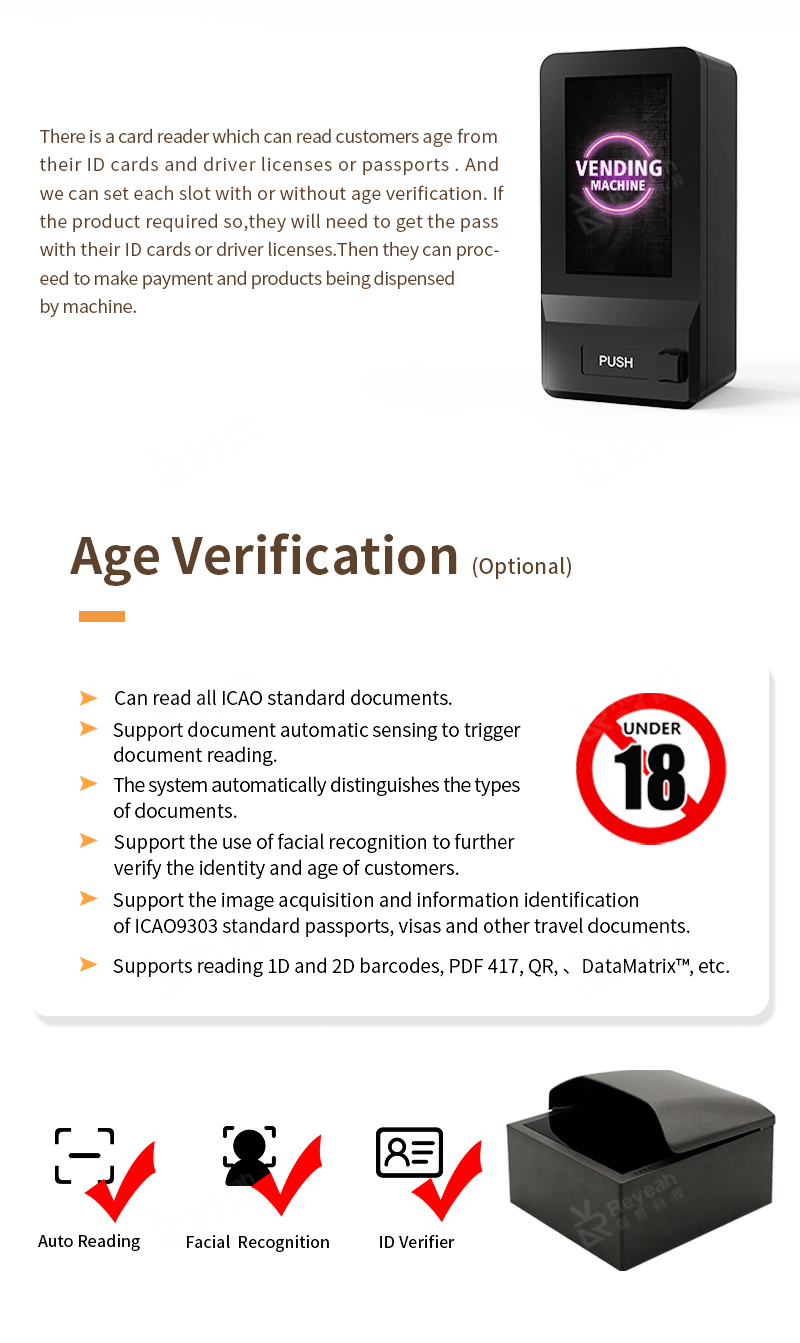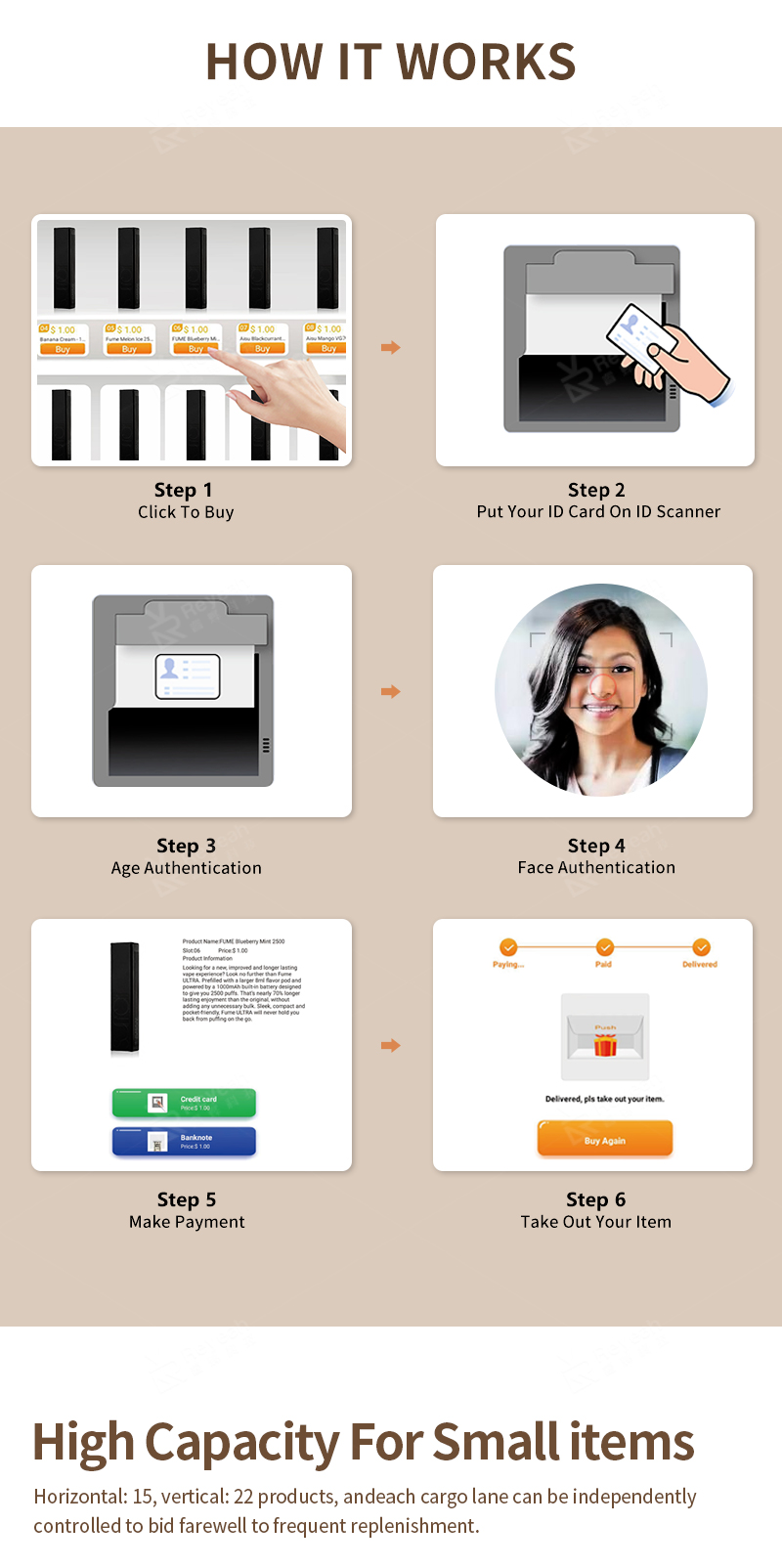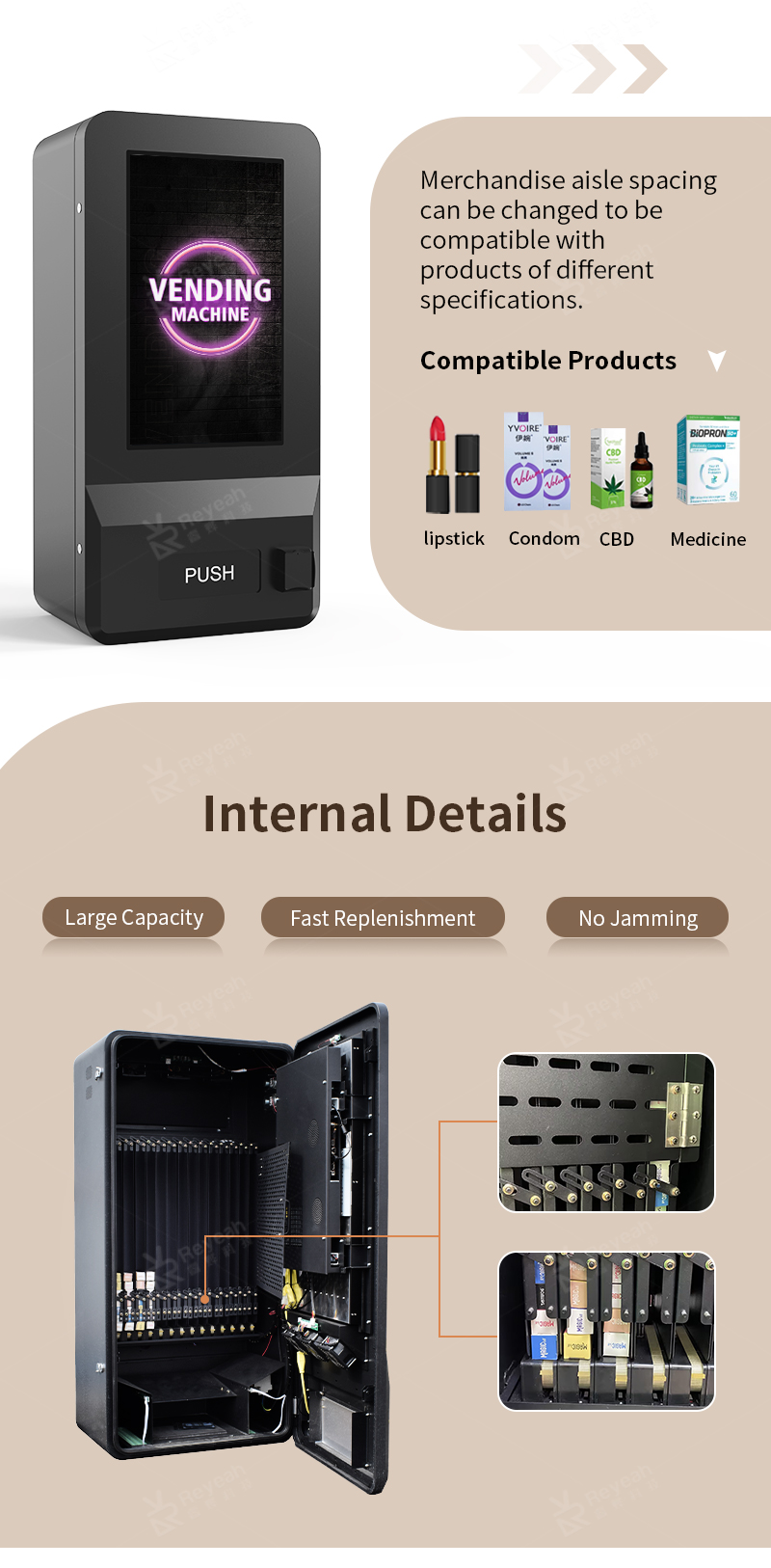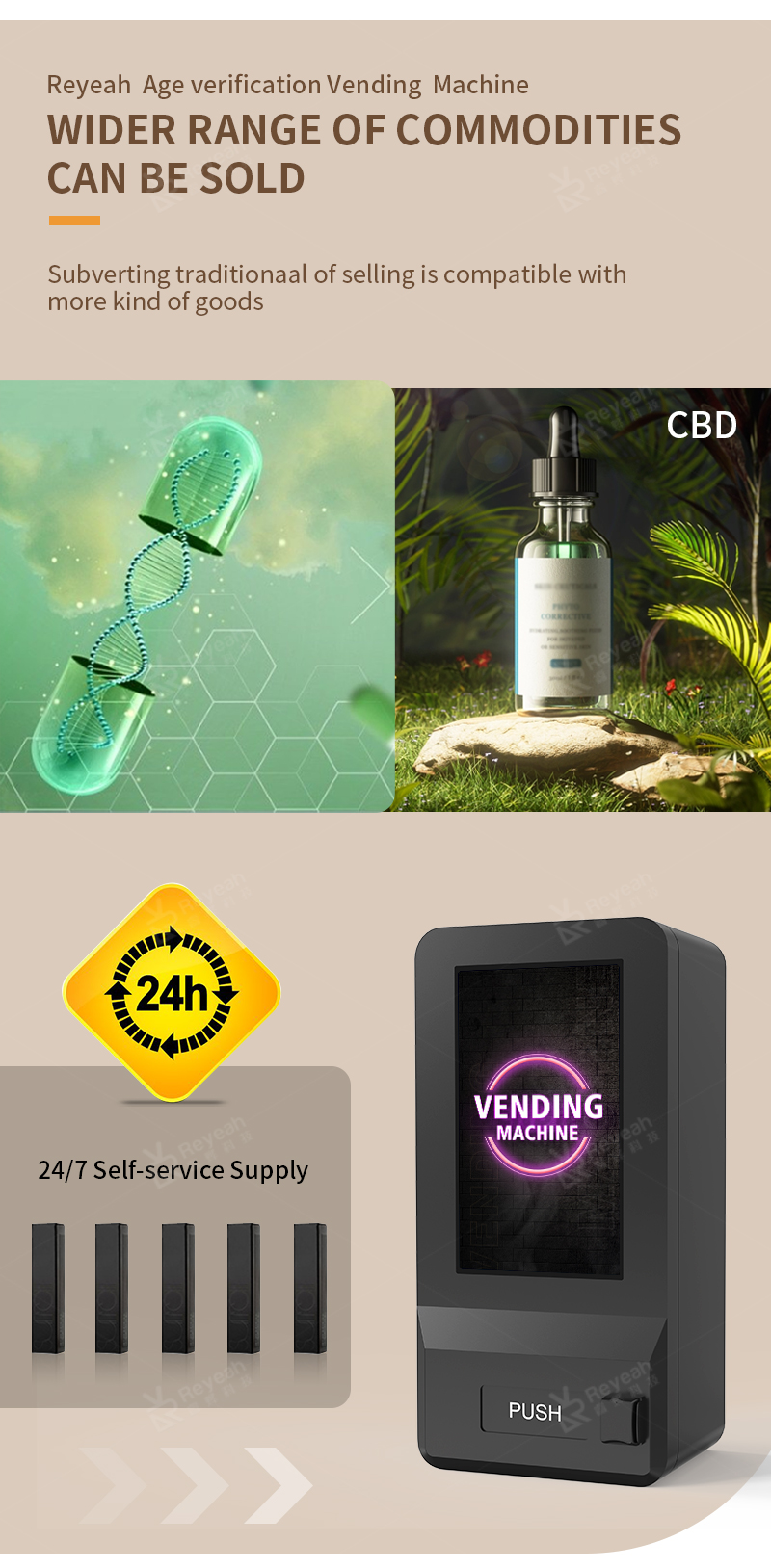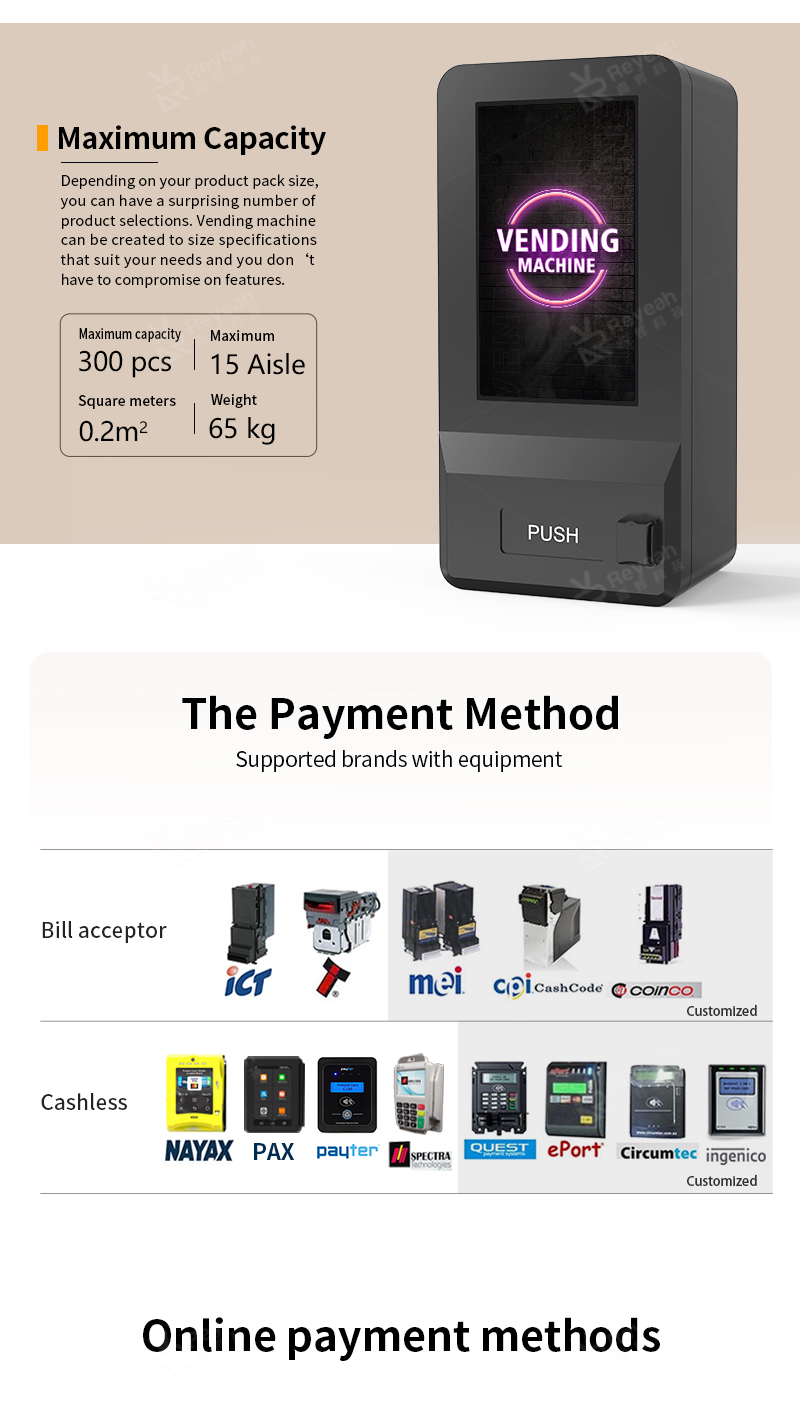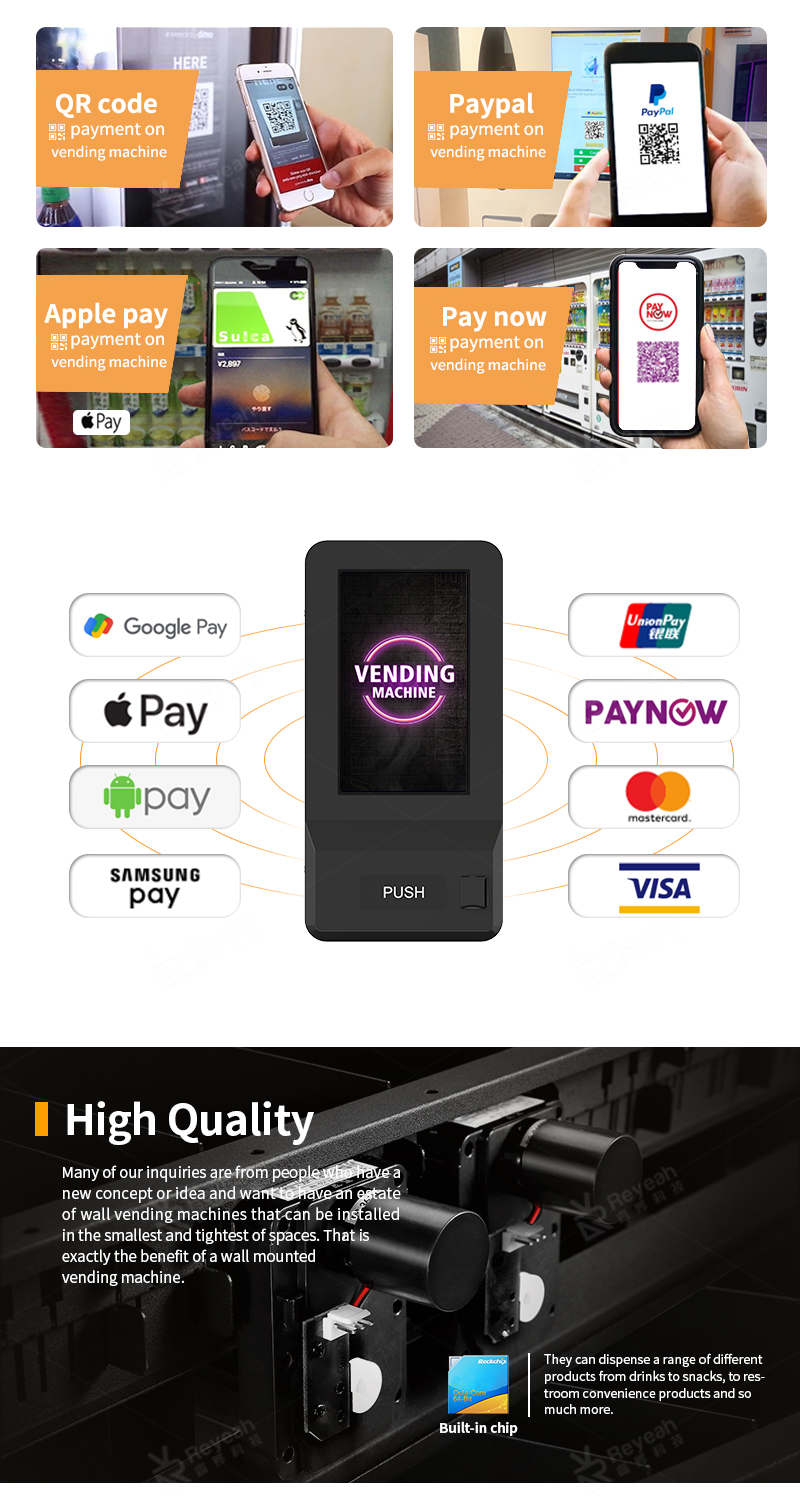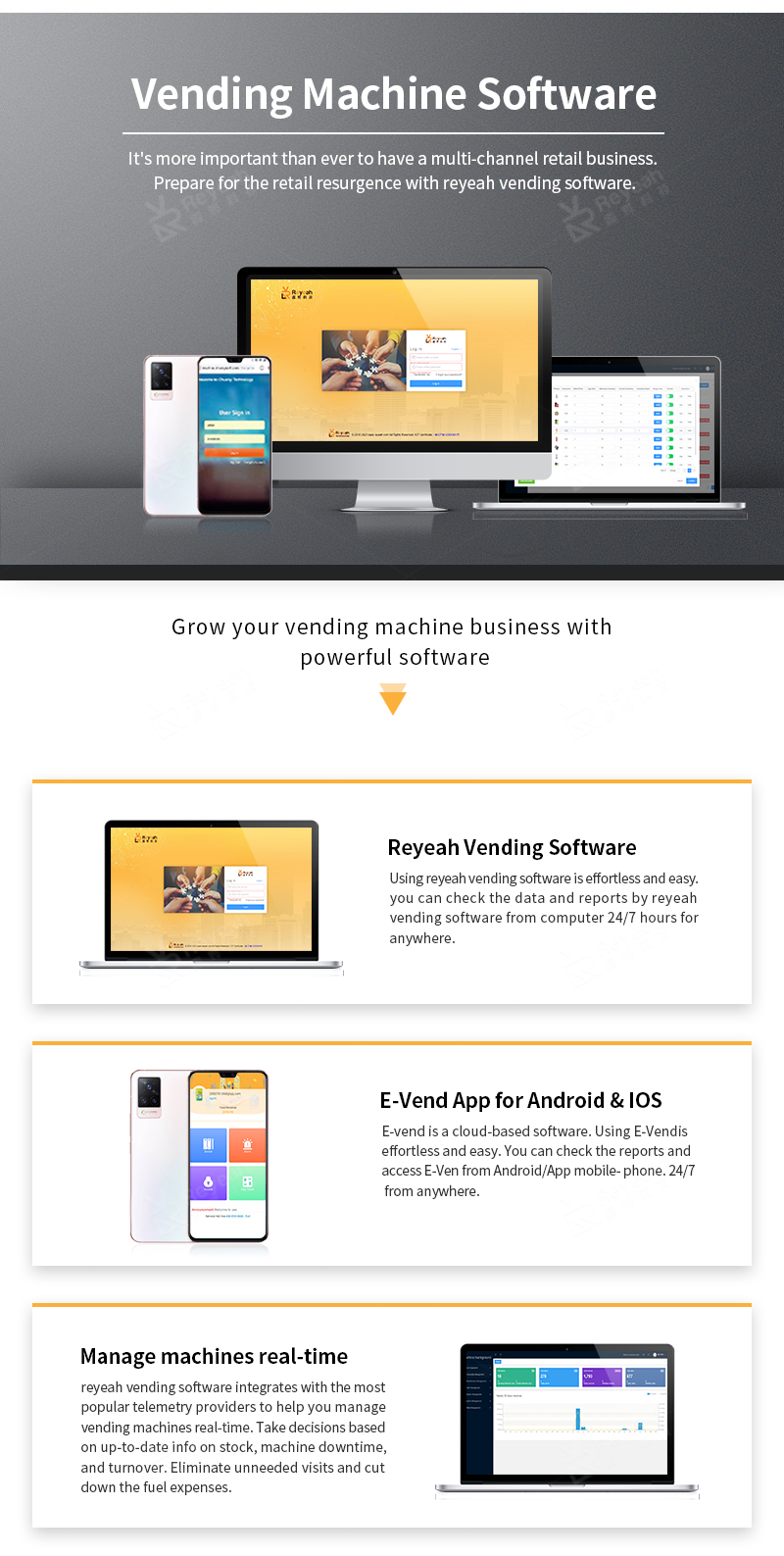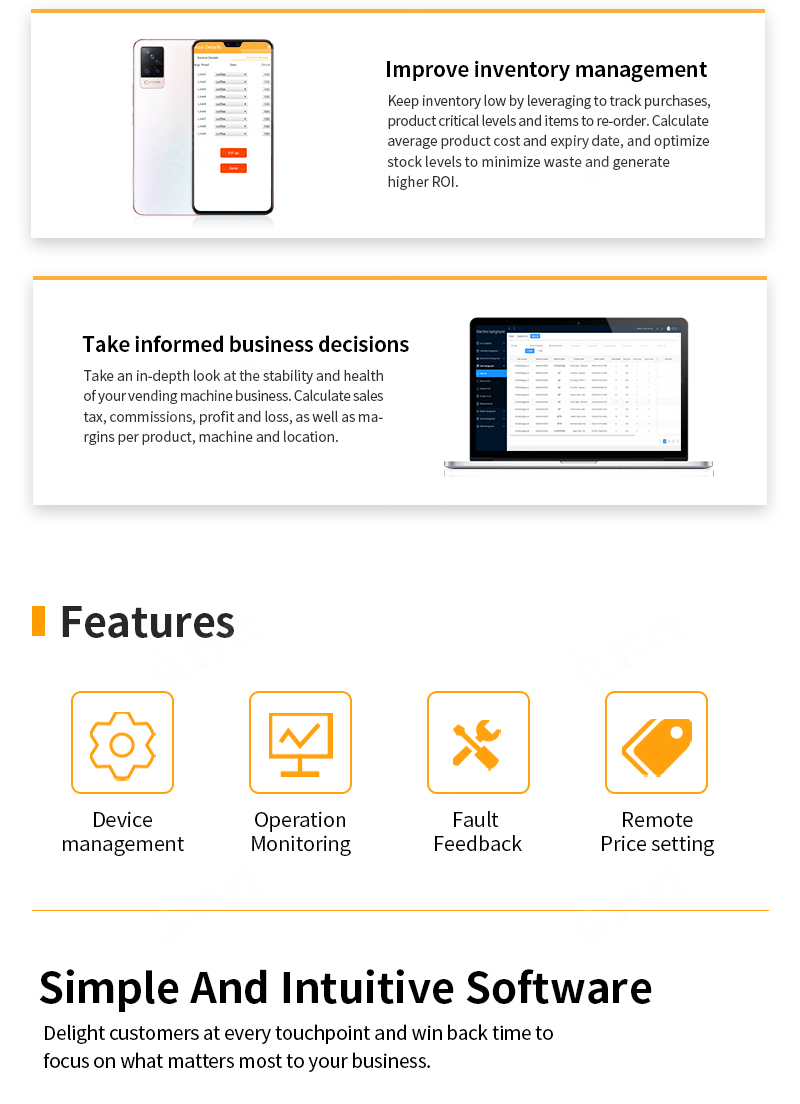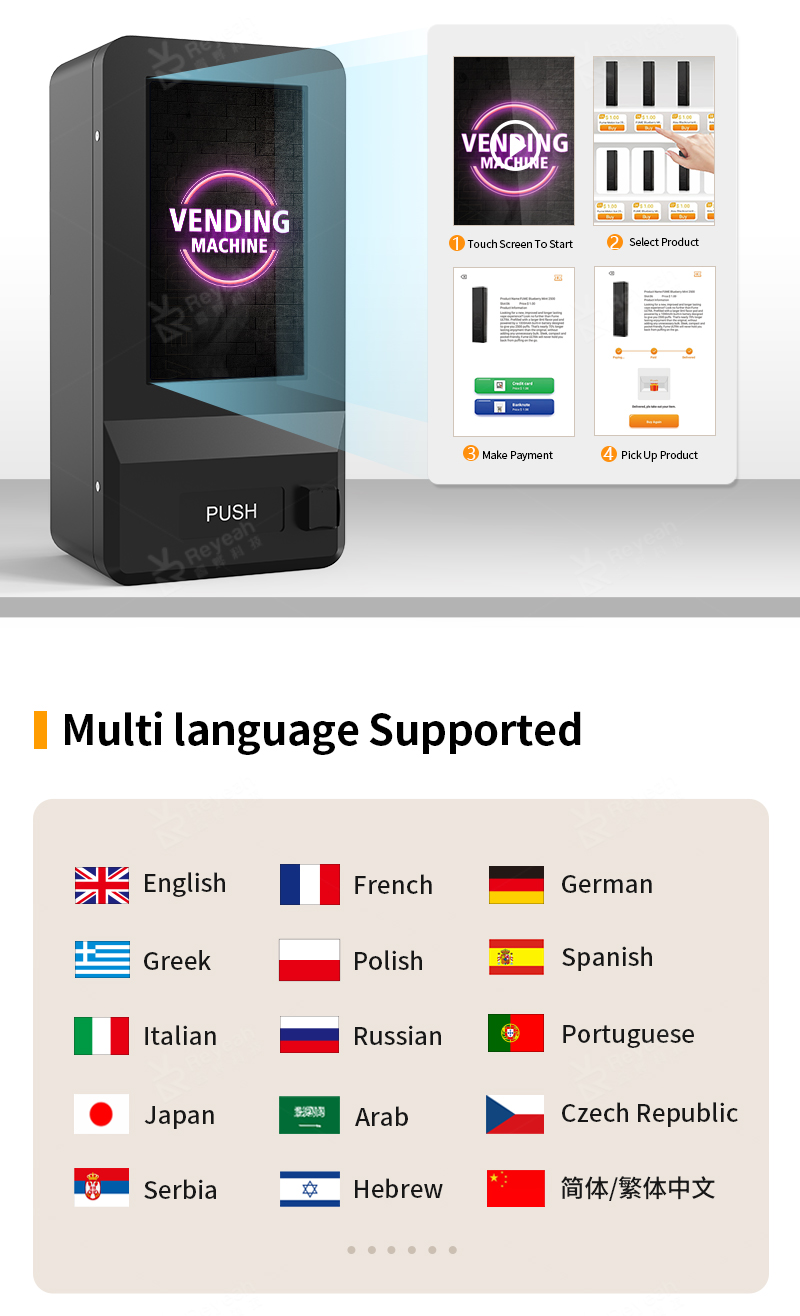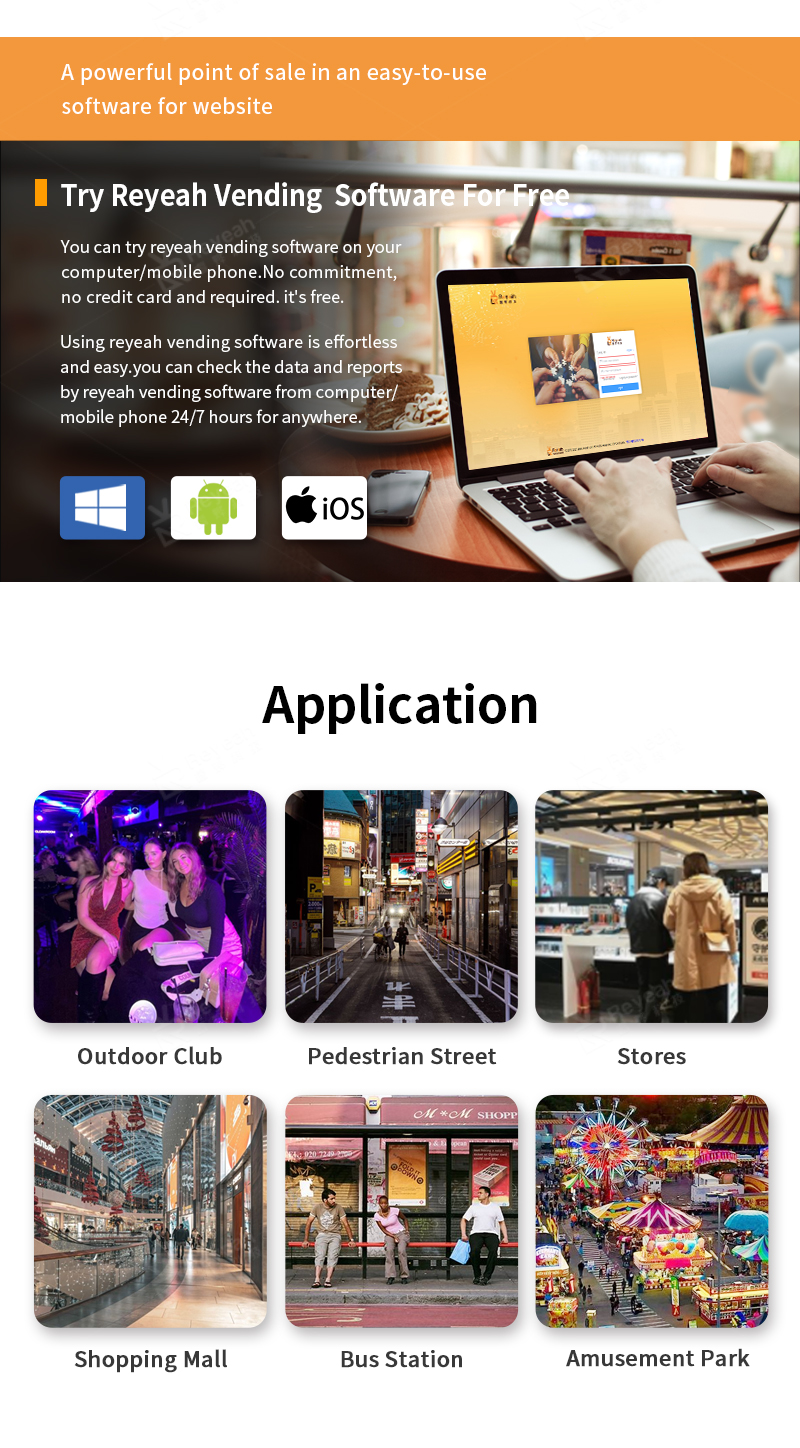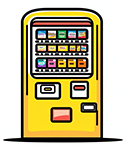Waterproof Vending Machines: A Fusion of Innovation and Practicality
In modern society, vending machines have become an integral part of our daily lives. Whether in subway stations, schools, offices, or on street corners, the convenience and practicality of vending machines are undeniable. However, traditional vending machines face a series of challenges in certain environments, especially in humid and rainy outdoor settings. To address these issues, waterproof vending machines have emerged, becoming a new highlight in urban development and public services.
I. Technical Features of Waterproof Vending Machines
Waterproof vending machines use advanced waterproof technology and materials in their design and manufacturing to ensure normal operation under various harsh weather conditions. Here are some key technical features:
Waterproof Enclosure: Waterproof vending machines use high-strength waterproof materials such as stainless steel or special plastics. Waterproof sealants are applied at connection points to ensure that rainwater cannot penetrate the interior of the machine.
Waterproof Electrical System: The internal circuit boards and wires are specially treated to be waterproof and moisture-proof. Key parts are also equipped with waterproof connectors and protective covers to prevent moisture damage to electrical components.
Drainage Design: The design considers the natural flow of rainwater, usually featuring drainage holes and channels at the bottom of the machine to prevent water accumulation inside the machine, which could affect normal operation.
Smart Sensors: Some high-end waterproof vending machines are equipped with humidity sensors and waterproof detection systems that monitor the internal humidity levels in real-time. If an abnormal situation is detected, the system will automatically alert and stop vending to prevent further damage.
II. Application Scenarios for Waterproof Vending Machines
The advent of waterproof vending machines has expanded the application range of vending machines, allowing them to function in more environments. Here are several typical application scenarios:
Tourist Attractions and Parks: These places have high foot traffic and are often outdoors. Waterproof vending machines can provide beverages, snacks, and rain gear, offering convenience to visitors.
Beaches and Poolside Areas: At seaside locations and poolside areas, regular vending machines are easily affected by humid air and water vapor. Waterproof vending machines can perfectly handle these challenges, providing ice cream, drinks, and sunscreen.
Public Transportation Facilities: Such as bus stops, train stations, and open areas of subway stations. Waterproof vending machines can provide drinks and snacks to travelers, as well as sell umbrellas and simple raincoats for emergency needs.
Construction Sites and Outdoor Workplaces: In these environments, waterproof vending machines offer workers beverages and food without concerns about machine damage due to environmental conditions.
III. Market Prospects of Waterproof Vending Machines
With the acceleration of urbanization and the continuous improvement of public service facilities, the market demand for waterproof vending machines is growing. Their advantages in convenience, all-weather service capability, and adaptability to various environments attract increasing investment and attention.
When developing and promoting waterproof vending machines, companies should focus on the following points:
Technical Research and Development: Continuously improve waterproof technology to enhance the durability and reliability of the products.
Market Promotion: Promote waterproof vending machines through various channels to expand their visibility and usage.
User Experience: Optimize user interface and operation processes to ensure ease of use and increase user satisfaction.
Maintenance Services: Establish a comprehensive after-sales service system to provide regular maintenance and rapid repairs, ensuring long-term stable operation of the machines.
